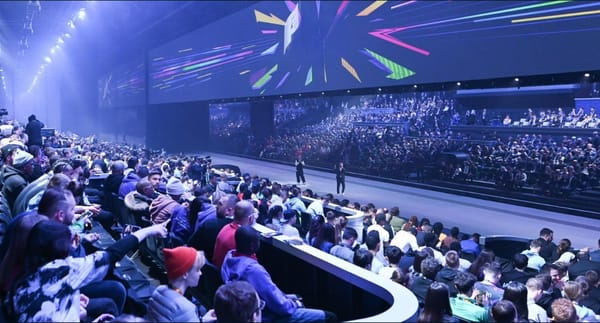As technology continues to advance, a new trend is emerging in the world of gaming that promises to reshape the future of entertainment in Africa: phygital games. An energy-packed Phygital Football demonstration tournament took place on Wednesday, 50 kilometres from the South African capital, Pretoria, much to the delight and relish of spectators. Just like it sounds, the name is derived from “physical” and “digital”, defining the sort of sporting activity that is a hybrid of physical competition and virtual gaming within a unified competitive structure.
Phygital games often utilize technologies like augmented reality (AR), virtual reality (VR), sensors, wearable devices, and gamified physical spaces. These games may require players to physically move, touch, or manipulate objects in the real world to influence the gameplay, while simultaneously engaging with digital content displayed on screens or through immersive technologies.
Phygital Games on the Rise in Africa
This “Games of the Future” has been and is fast gaining popularity across the globe particularly in Africa, delivering thrilling entertainment and heightened competition. The World Phygital Community (WPC) already has federations across 23 African nations. Currently, the Ghana Esports Federation is carrying out athlete registration in preparation for assembling the national team to compete in the upcoming Global Phygital Games.
In the past year alone, 16 premium phygital tournaments have been held across the continent, featuring 240 clubs competing for a spot at the GOTF Qualifiers or The Games of the Future 2025, billed for November 21 in the United Arab Emirates, where participants will compete in both physical sports and esports for prestigious prizes.
After 16 teams battled at the Uhuru Sports Complex for the single slot to represent Kenya at the global tourney, Esports Kenya president Ronny Lusigi said, “This first edition of phygital cup has exceeded our expectations. We had a great turnout from spectators, enthusiastic coverage from the media, and of course a wonderful display of talent by the players. We look forward to seeing the boys do well in Dubai.”
In the past week, delegates from the WPC travelled to South Africa specifically to accelerate the adoption of this multi-sport model, which seeks to integrate video games and traditional sports, propelled by the sedentary lifestyles that are becoming commonplace. The event was highlighted at a mini Phygital Football tournament in Johannesburg, where teams first competed in a football video game (the FIFA series) before playing a five-a-side match on the pitch. Combined scores of both formats determined the overall winner.
Credit: Insidethegames
The Johannesburg competition, which demands both technical and physical skills from players, left a strong impression on spectators, particularly those experiencing it for the first time. Phygital rules state that two members of each team battle it out on the virtual pitch, while also being part of the five-a-side match.
This can lead to different permutations in team selection, with skilled video game players having to combine their physical skills alongside strong football players on the pitch. From audience excitement and enthusiasm, the frenetic demonstration tournament in Johannesburg solidly achieved its aim of showcasing the power and prowess of phygital to a captive audience, just like with conventional sports.
While traditional video games are largely confined to screens, phygital games leverage Africa’s unique characteristics, such as its rich cultural heritage and diverse physical environments, to create experiences that feel both local and global. For example, in Africa, where space and resources may be limited, phygital games that use mobile devices or AR technologies allow players to experience larger-than-life adventures without needing access to expensive gaming consoles or VR setups.
Conclusion
Credit: WPC
In the final analysis, the Esports championship, as demonstrated in South Africa is a testament to the strong interest from communities traditionally distanced from conventional sports, where access to technology and digital culture is becoming increasingly relevant. There is no doubt that the fusion of gaming and traditional sports unlocks a world of opportunities that can fuel talent, drive economic growth, and create life-changing pathways for athletes and gamers alike.
The growing interest in phygital sport, even in the grassroots, is therefore not surprising as it depicts a transformative movement that is so inclusive that even physically-challenged persons can conveniently participate. In a region where youth, technology, and sport are seeking new ways to connect, Africa is not merely participating but is taking the innovative sport genre to another level.
As the representative of Phygital South Africa, Edgar Sandamela said at the event’s closing ceremony, "Phygital sport opens doors to new audiences, promotes digital literacy, and inspires young athletes. With the right support, we can weave phygital into the fabric of African sport.”

